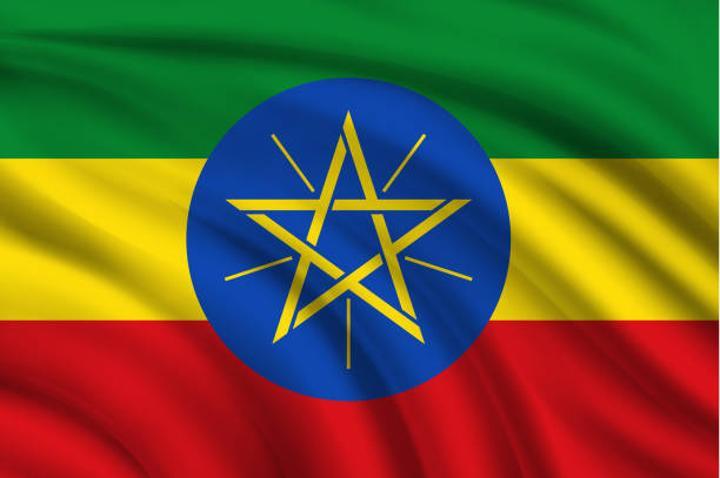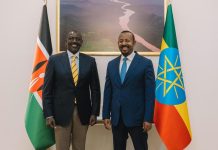By Staff Writer
Africa-Press – Ethiopia. Addis Ababa, February 6, 2025 (ENA) – Over the last six years, the Federal Government of Ethiopia has rendered a special attention to the issue of building grand narratives among the population to forge the state building endeavours.
Ethiopia is home to diverse nations, nationalities and peoples with their own distinct languages, cultures, religion, values and traditions. The notion of building shared narrative generally emanates from Ethiopians coexistence for millennia, their common aspirations, and value systems to thrive together.
Of course, acknowledging and addressing historical grievances, injustices, and traumas that Ethiopians have endured in different era history of our country are prerequisites before implementing systems through which corrective steps will be taken to nurture grand narratives.
There have been historical accusation and counter-accusations across social and linguistic layers in Ethiopia, erupting conflicts, inequalities and marginalization. Such deep-seated grievances have plunged the country into cycles of civil war, poverty and extreme and zero-game political system. The way authoritarian rulers attempted to deal with the demands of political forces has never worked—they simply crushed what they considered were enemies. Inclusive and democratic system were not in place.
In a message Prime Minister Abiy Ahmed conveyed in connection with the 5th anniversary of Prosperity Party (PP) he said that the reform program resolved past shortfalls, retained present achievements and charted out a pathway for Ethiopia’s future development.
He underlined that PP has been mending old political fractures and tried to build up on positive political assets in the country. This indeed is one of the fruits of the national reform program.
Today, Ethiopia is confronted with backlogs of unaddressed issues that it has inherited from past. So addressing these problems through round table discussions should be carried out through the lense of grand narratives, critical to reshaping Ethiopia’s future. Resolving Ethiopia’s past history requires extensive dialogue, and understanding by active participation underscoring its diversity and national unity.
Hence, taking a course of action that unifies national identity should transcend ethnic, religious, or linguistic identity the home grown political philosophy—Medemer.
Ever since the inception of the nation-wide reforms launched in 2018, the Government of Ethiopia has given a special attention to the promotion of peace and reconciliation as the core value of governance and sustainable development. This was demonstrated by releasing thousands of inmates and political prisoners who were languishing in the dungeons and secret prisons across the country as a goodwill gesture for the prevalence of peace in the country. Political parties who were operating in foreign lands were also provided with amnesty to come back home and engage in the democratic process and development of peaceful life in the country.
In the efforts made thus far, progresses are consolidated, shortcomings addressed and past mistakes corrected, laying a foundation for national unity, peace and development.
The national dialogue is an opportunity that comes once in a blue moon, paving the way for Ethiopia’s bright future. The National Dialogue Commission has been active over the last three years in conducting consultations and agenda items across the regions based on phased approach. This is major departure for the Ethiopian peoples to come together through their representatives to build national consensus and grand narratives on major issues of the country.
For a national consensus, it is important to engage in inclusive dialogue and consultation processes involving diverse stakeholders, including government representatives, political parties, civil society organizations, religious leaders, elders, the youth and women.
Ethiopia has also launched a Transitional Justice Policy aimed at overseeing and executing the transitional justice process in a methodical, cohesive, and efficient manner at national level. Central to Ethiopia’s transitional justice journey is the establishment of a truth-seeking process, such as a truth and reconciliation commission. This systematic investigation aims to illuminate past human rights abuses, identify perpetrators, and uncover the circumstances surrounding these atrocities. By acknowledging victims’ suffering and confronting the nation’s history, this process can foster a shared understanding and pave the way for accountability and justice.
The foundation of Prosperity Party eliminated the political configuration between center and periphery, the major party and partners, the farmers and pastoralists, the revolutionaries and the reactionary as well as the enemies and friends, replacing them with the concept of supremacy of ideas and concepts.
Prime Minister Abiy Ahmed has made repeated calls to armed groups to lay down their arms and accept the path of peace. The prime minister recently renewed his call to the armed groups to embrace the path of peace to which the government will go the extra mile.
Recall the people in Oromia and Amhara regions held rallies, voicing their unwavering support for the government’s ongoing efforts for peace and foster development. Conflicts in Oromia and Amhara regions caused numerous social and economic crisis, prompting the public to hold rallies in different areas of the regions in support of government’s repeated appeal for peace and dialogue.
This has prompted former militants in Oromia and Amhara to accept the path of peace, underscoring the futility of armed struggle that does not take the country anywhere, rather than causing destruction.
The decision of former militants to embrace peace after heeding the government’s call and responding to the people’s demand for peace serves as a powerful demonstration that armed conflict is not a viable solution to Ethiopia’s problems.
The government is dedicated to fostering lasting peace and national consensus in Ethiopia and called on all citizens to contribute their share to the success of the national effort.
Peace never comes through guns or violence. This is evident in the political history that Ethiopia has passed through to date. Lessons must be drawn from what Ethiopia has experienced through its history.
All told, as the National Dialogue Commission is tasked to resolve differences and disagreements through broad-based inclusive public dialogue that engenders national consensus, political forces and armed groups should be on board to bear the brunt of the burden to at least alleviate the backlogs of Ethiopia’s problems, which this generation passes on to posterity.
Source: ENA English
For More News And Analysis About Ethiopia Follow Africa-Press






